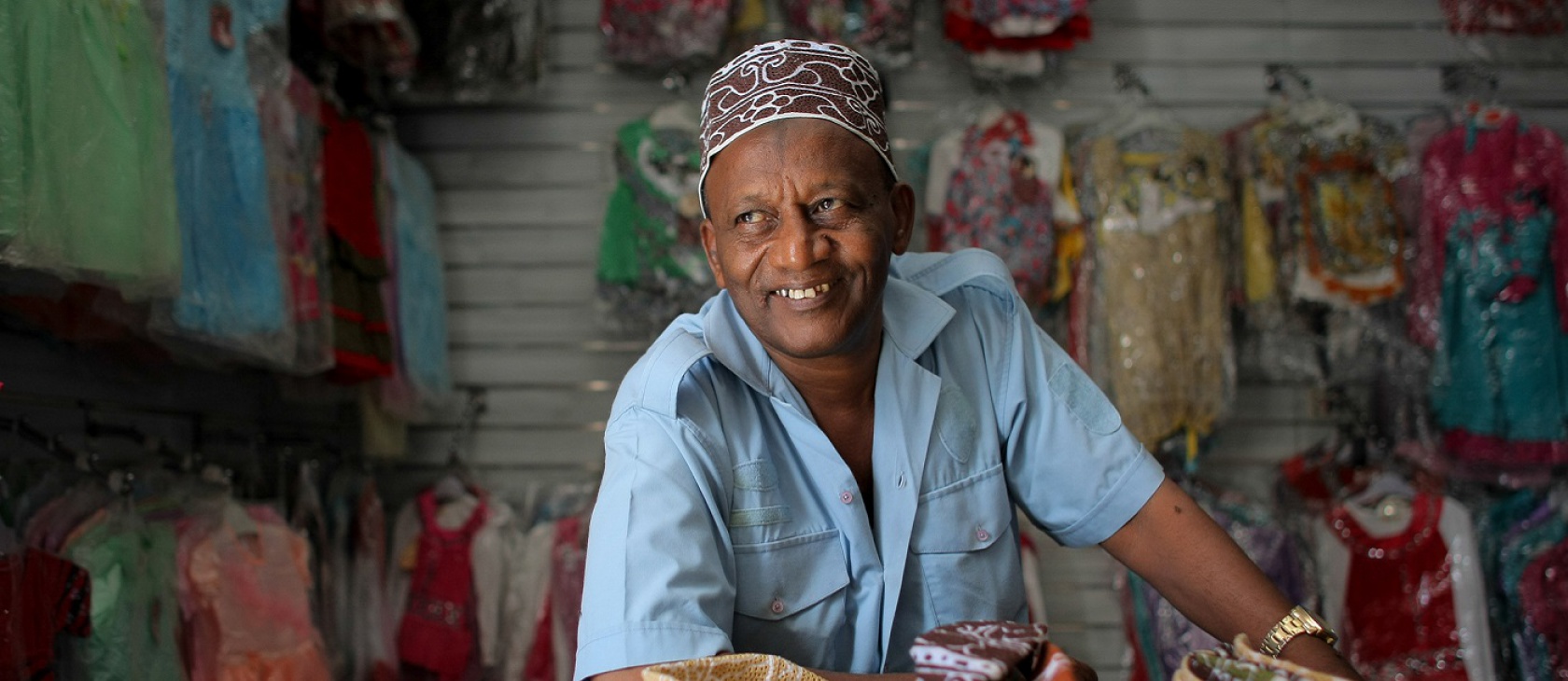Before reading this article, I would like you to ask yourself, “Have poverty and inequality in the world increased, decreased, or stayed about the same in the last 30 years?”
I am asking these questions in the context of a huge range of books published in recent years dealing with inequality, most notably by Thomas Piketty. And poverty and inequality have been important features of general elections and papal encyclicals in recent times.
So, what about the answers? When it comes to poverty, in the last 30 years, the proportion of the world living in absolute poverty has more than halved – indeed, it has halved in just the last 20 years. Yet just eight per cent of Americans that thinks poverty is declining. Only one person in 100 correctly estimates the extent of the fall in global poverty.
It is not just that poverty is falling; the extent and speed of the fall is unprecedented in human history. Furthermore, child mortality, illiteracy, and even pollution in wealthy countries have fallen dramatically. Between 1990 and 2015, the proportion of children under five in the world who are malnourished fell from 25 per cent to 14 per cent. And the average number of calories the malnourished needed to consume in order to be nourished fell from 170 a day to 88 a day by 2016. There are far fewer people in desperate poverty and those who are malnourished fall short by much less. (For more details, see Johan Norberg’s Progress.)
Many people believe that there has been a fall in poverty but that this has gone hand-in-hand with a rise in global inequality (and they are prepared to accept the latter in order to gain the benefits of the former). In fact, inequality has also fallen by most standard measures. This trend is likely to continue until at least 2035 as a result of the poor catching up with the rich. The rich are not getting richer very fast, but the poorer are.
It is true that, within most developed countries, inequality has increased (though that is not true in the UK, where inequality has fallen back to its lowest levels since the mid-1980s). However, the really significant fact is that, between countries, inequality has fallen dramatically.
This begs the question: Why do we underestimate success? Why do we accept fake news about these issues? There are a number of cultural and psychological explanations for the persistence of such pessimism. Psychologically, people tend to idealise the past, and recall dramatic and unusual events more easily than steady long-term trends.
This is really important for Christians. The virtue of prudence demands that we think carefully before we take positions.
Philosopher Steven Pinker argues that the tendency to underestimate success is at least partly to do with the “psychology of moralization,” whereby academics compete for moral authority. Critics of the present state of affairs who argue that things should be much better are seen as morally engaged, whereas those who say things are not too bad are seen as apathetic.
This is really important for Christians. The virtue of prudence demands that we think carefully before we take positions. We should say things that will lead the world to become a better place, not things that lead us to be seen as better people. Bad economic policy leads to misery. If Christians encourage the development of bad economic policy out of virtue signaling, they bear culpability for people’s poverty. We have a responsibility to contribute to this debate with accurate analysis.
When it comes to determining good policy, the most obvious candidate for explaining the reduction in poverty and inequality is globalisation. Globalisation has increased the incomes of previously very poor people who live in former protectionist and isolationist nations. Such people can now buy products at lower prices and sell products in which they have a comparative advantage on world markets.
In which ways has inequality increased?
One result of these processes is that inequality within many previously poor countries has risen. This should not be surprising. If a country has a population where, say, 75 per cent of the population is close to starvation, there is an equality of misery. Any liberalisation of that country that leads to more business opportunities, more trade, and freer markets will lead to some gaining more rapidly than others – even if everybody gains. So, when China became freer, inequality rose rapidly as people pulled themselves from near-starvation at different rates. However, since 2008, inequality has stopped rising in China. Contrary to the views often expressed by aid agencies, inequality should not be seen as a problem. It is a natural consequence of everybody not existing at a level of subsistence and misery.
Another phenomenon is the rise of the top one per cent. I believe that this phenomenon has largely to be seen as an inevitable consequence of globalization, and it arises because people with certain talents can hugely increase their earnings by an order of magnitude when they can market those talents globally.
Perhaps it is easiest to visualize this phenomenon with the example of a star golf pro. Sixty years ago, a great golfer would only have been able to earn income as a result of local sponsorship, perhaps earnings generated by the organisers of tournaments from radio and maybe some TV. Today, a golfer can market his talents all around the world. TV companies will buy rights and sell them so that almost everybody in the world can benefit from watching major golf tournaments. This is great for those who want to watch golf in countries where they could not before. It also means that, even if the golfer only takes a tiny fraction of that added value, he can become incredibly rich.
Christians should focus public policy, not on reducing inequality, but on ensuring that the barriers to the advancement of the poor are removed.
The same happens to entrepreneurs such as Bill Gates. Microsoft can sell its products everywhere in the world. We all benefit from them. Even if Gates only gets a tiny proportion of that added value of selling to a larger market, he can become very rich. Not everybody can do that, but some people market their products to every corner of the world. The larger the market, the larger the profits and wealth accumulation.
High incomes harm the wealthy, not the poor
For me, as a Christian, I do not see the ability of some to make much larger incomes through open markets as a problem for everybody else; I see it as a problem for those who have the grave responsibility of handling high levels of wealth.
Christians should focus public policy, not on reducing inequality, but on ensuring that the barriers to the advancement of the poor are removed. This might, or might not, reduce inequality as a side effect. If we are willing to make the rich much worse off simply to reduce inequality – without making anybody better off – then we are succumbing to the temptation of envy.
Envy is a harmful basis for public policy. It is not difficult to decrease inequality. Consider what happened in Ireland after the financial crisis. Unemployment tripled, to 14 per cent. There were savage wage cuts in the private and public sectors. Poverty rose rapidly. In 2009, nearly one-quarter of the population were in arrears on utilities or other bills. All this happened, and yet inequality fell, because the wages of high earners were slashed.
But the fact that we should not be concerned about inequality as a matter of principle does not mean that the position of the poor should not be a major concern for us. This is true when it comes to both international and domestic policy.
And, when it comes to globalisation, the evidence is pretty clear. Taking the world as a whole, it has pulled billions out of the most abject poverty. The impact on inequality is mixed. But, in the most important ways, inequality has fallen because the world’s poorest have caught up with the rest. This is a result that should please us greatly and encourage us, as Christians, to make the case for globalisation.
(Photo credit: AMISOM Public Information. Public domain. CC0 1.0.)




